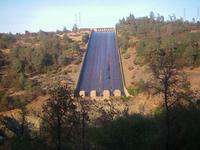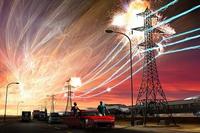-
Federal IT spending to exceed $11 billion by 2018
A new report from Delteks, contracted spending on cybersecurity will continue to grow from nearly $9 billion in FY2013 to $11.4 billion in FY2018, driven by multiple initiatives aimed at improving the overall cybersecurity posture of federal agencies. Persistent threats, complex and evolving policy issues, and changing technologies highlight ongoing cyber-workforce shortages to drive investments despite constrained federal IT funding.
-
-
Cyber Gym in Israel trains cyber-defenders
A group of IT and infrastructure companies in Israel have teamed up to launch Cyber Gym.The facility, inaugurated this month by Israel Electric Corp. (IEC), will train participants to defend against cyber attacks.When Sivan Shalom, Israel’s Infrastructure and Energy Minister, was asked whether Israel was more concerned about a physical or a virtual attack, he said: “I think the future battle will be in cyberspace.”
-
-
U.K. tightens animal disease surveillance
The U.K. Animal Health and Veterinary Laboratories Agency(AHVLA) has introduced a new surveillance system to detect new and re-emerging animal disease threats in England and Wales. The new system is expected to improve the geographical and species-specific coverage of disease.The new system will rely more on private sector laboratories for gathering surveillance intelligence and less on government laboratories.
-
-
Airport scanner vendor failed to disclose use of Chinese components
Recently TSA cancelled a $60 million contract with Rapiscan Systems, a manufacturer of anatomically revealing airport security scanners, after Rapiscan was found to be using unapproved Chinese components in its scanners – and failing to disclose this fact to TSA. Rapiscan, in bidding on the contract, submitted a list of U.S.-made components used in the scanners to the agency, as required by law. After the company received an approval of that list – and the $60 million contract – it ordered the same components from a Chinese company — the Shanghai Advanced Non-Destructive Testing – instructing the Chinese company to label the Chinese-made components with the same part numbers as the originally approved, U.S.-made components, apparently in an effort to make it more difficult for TSA inspectors to notice the illegal switch. Members of the House Homeland Security Committee, charging that the use of Chinese components made the machines susceptible to sabotage, disruption, or spying, want to know whether TSA was aware of Rapiscan’s shenanigans.
-
-
Virginia Tech to get $2.6 million to test unmanned aircraft systems

The Commonwealth of Virginia announced it will award more than $2.6 million over three years in Federal Action Contingency Trust (FACT) funds to Virginia Tech to operate an unmanned aircraft systems test site in the state, officials from the governor’s office said. The test range is operated by the Mid-Atlantic Aviation Partnership, which is led by Virginia Tech and Rutgers University and represents an effort safely to develop unmanned aircraft systems. The University of Maryland has also agreed to partner with Virginia Tech and Rutgers on unmanned aircraft system integration.
-
-
Feds, Calif. disagree on seismic safety of U.S. tallest dam

At 742 feet, Oroville Dam in Oroville, California is the tallest dam in the United States. It is 45-year old, and federal inspectors say it needs a comprehensive earthquake safety assessment. The California Department of Water Resources (DWR) insists that the dam, which holds 3.5 million acre-feet of water, is safe, and that such an assessment would be an “unjustified expense.” David Gutierrez, chief of California Division of Safety of Dams (DSD), says his agency will decide in January 2014 whether earthquake assessments will be made, but notes: “Oroville is not one that keeps me up at night from a seismic stability standpoint.”
-
-
Virtual wall to build invisible barrier for oil spills
The outer shell of a droplet of oil on a surface has a thin skin which allows it to hold its shape like a small dome; this shell is referred to as the liquid’s surface tension. Now, researchers have developed a technique to form a virtual wall for oily liquids that will help confine them to a certain area, aiding researchers who are studying these complex molecules. This development will have future implications in the guided delivery of oil and effective blockage of oil spreading.
-
-
Game theory helps corporate risk manage analyze terrorism risks
The challenges of modeling and analyzing terrorism risk are based on the reality that the adversary is one who can alter where and when to strike and has the capability to counter-attack. Before 9/11, the science of risk modeling and analysis for corporations was primarily based on data accumulated from Mother Nature, a less responsive actor. Risk models have become more precise, but this increased precision notwithstanding, terrorists are likely to act in unexpected ways. To anticipate those unexpected ways, risk managers are relying on game theory, with the assumption that exploring hypothetical situations will prepare risk managers for the unexpected.
-
-
Y-12 security breach update: Old nun awaits sentencing while costs of new Y-12 facility not to be released until 2015
On 28 July 2012, three senior citizens, led by an 83-year old nun, easily breached the supposedly impregnable security systems protecting the Y-12 National Security Complex at Oak Ridge, Tennessee. The three peace activists wondered the grounds of the maximum security facility for a while before being noticed by security personnel. While the three aging protesters are awaiting sentencing, the two companies — Bechtel Corporation and Babcock and Wilcox – which were responsible for designing and implementing security at Y-12, have been named as the primary construction contractors for planning and design of the new uranium processing facility (UPF) to be built at Y-12.
-
-
Defending against electromagnetic-pulse attacks

We are all familiar with the power of electromagnetic attacks from the movies: in “Ocean’s Eleven,” George Clooney’s gang disables Las Vegas’ power grid, and Keanu Reeves’ henchmen hold off the enemy robot fighters from their spaceship in the “Matrix Trilogy.” The heroes in the films succeed by sending out a very strong electromagnetic pulse, which changes the voltage in the vicinity so that regulators, switches, and circuit boards in electronic equipment go crazy. Researchers are now trying to figure out how such attacks can be detected. They have developed a measurement instrument for this purpose that is capable of determining the strength, frequency, and direction of electromagnetic attacks.
-
-
Weather risk management should be part of companies’ overall risk management
Volatile weather activity is increasing around the world. While extreme events such as typhoon Haiyan in the Philippines or flood Cleopatra in Sardinia may capture the headlines, minor fluctuations in expected weather can have big impacts on business performance across a wide range of industries. A new report focuses on the growing importance of weather risks for businesses, highlighting the economic impact of fluctuating weather conditions and how companies can protect themselves, using new approaches to “weather risk management.” Weather risk management products are already widely used in the United States, where they have become more readily accepted as a standard feature of companies’ overall risk management.
-
-
Digital privacy services enjoying a surge in demand
Digital privacy services such as encrypted e-mail, secure instant messaging, and services that provide hard-to-track IP addresses are enjoying a surge in demand as individuals and businesses seek to protect information from spies and hackers in the wake of the National Security Agency’s (NSA) surveillance program revelations. These services promise security, but may also slow down computer performance. Moreover, they are not likely to deter those who are determined to hack into a particular computer network.
-
-
Akamai to acquire cloud-based security solutions provider Prolexic
Organizations, faced with an ever-changing threat landscape, require comprehensive security solutions that address many different protection scenarios. These include securing mission critical Web properties and applications from attack, as well as protecting the full suite of enterprise IP applications — including e-mail, file transfers, and VPN — across a data center. Akamai acquires Prolexic in order to extend its Web optimization and security offerings by adding cloud-based security solutions for protecting data centers and enterprise applications.
-
-
Physics can lead the U.K. economic recovery: IOP president
Physics research in the United Kingdom has had a great year and physics can lead the U.K. economic recovery, but ongoing success depends on a healthy “educational pipeline,” Institute of Physics (IOP) president Frances Saunders told. For the success of physics research and application to continue, however, there had to be enough young people choosing to study physics post-16 and at university, she said. Numbers studying physics A-level had increased from a low point of 27,000 in 2006 to almost 36,000 this year, and applications to undergraduate physics courses had increased by 8 percent in 2013, she said.
-
-
Helping farmers cope with climate change is big business
Monsanto estimates there is a $20 billion market for employing massive data analysis to provide weather forecasting and crop-growing advice tailored to individual plots of land. With a $300 billion agriculture industry in the United States exposed to climate change, predicting the effects of warming temperature is critical to the industry. Monsanto has recently acquired – for $1 billion — the Climate Corporation, a Silicon Valley company which uses data analysis and algorithms to redefine how farmers grow and harvest crops. The company provides farmers with insights which predict weather pattern and the changing effects on crops.
-
More headlines
The long view
Factories First: Winning the Drone War Before It Starts
Wars are won by factories before they are won on the battlefield,Martin C. Feldmann writes, noting that the United States lacks the manufacturing depth for the coming drone age. Rectifying this situation “will take far more than procurement tweaks,” Feldmann writes. “It demands a national-level, wartime-scale industrial mobilization.”
Trump Is Fast-Tracking New Coal Mines — Even When They Don’t Make Economic Sense
In Appalachian Tennessee, mines shut down and couldn’t pay their debts. Now a new one is opening under the guise of an “energy emergency.”
Smaller Nuclear Reactors Spark Renewed Interest in a Once-Shunned Energy Source
In the past two years, half the states have taken action to promote nuclear power, from creating nuclear task forces to integrating nuclear into long-term energy plans.
